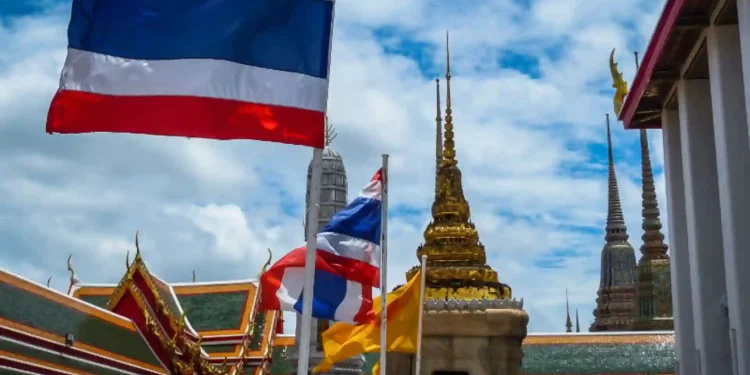A major criticism of the plan was that the investment sum was quite low, and the policy could drive up property prices, thereby crowding out local ownership.
Thailand decided to shove a plan permitting foreigners to possess limited ownership of the land back into the drawers following a rip-roaring public backlash on Tuesday. The opposition parties labeled that the move was predominantly “selling out” the country.
The Thailand government took a major step to give foreigners the right to purchase land for housing as an opportunity to boost the economy by alluring wealthy international investors earlier this year. So far, individuals can only own condominium units through complicated long-term lease agreements. The investment in this plan was limited to 1 rai (0.16 hectares) of land if high net-worth individuals invest at least 40 million baht (USD 1.08 million) in fixed-income securities whose principal and interest are backed by the Finance Ministry or bonds issued by the Thai government, Bank of Thailand, or real estate mutual funds and property trust funds, for at least 3 years. The housing sites could be owned only in Bangkok and Pattaya.
On Tuesday, the cabinet approved drawing the plan back for further consideration and review. The Director of the Department of Land, Chayawut Chanthorn, assured that Deputy Prime Minister Prawit Wongsuwan had approved the withdrawal of the Interior Ministry’s draft regulation for the same.
“The interior ministry has withdrawn the proposal … to listen to opinion from all parties so that it is comprehensive,” stated government spokesperson Anucha Burapachaisri at a news conference.
The word on the street was that the investment sum was quite low, and the policy could drive up property prices, thereby crowding out local ownership. The government will thus analyse the public opinion and feedback to re-evaluate the stipulated impacts and address concerns raised. The opposition parties advocated the negatives that would be brought in by the plan, including the chances of landless Thai citizens’ inability to purchase land.
Interior Minister Anucha Paochida called the issue “a delicate matter” and indicated a possible study to be conducted to weigh the advantages and disadvantages of the situation.
Foreigners can, however, still purchase land under the ministerial law that has been effective since 2002. As the stats go, only a handful of deals (not even a full dozen) have been struck in a two-decade span.
Thailand has been on the lookout for bagging foreign direct investments to spike up economic activities post-pandemic. Government policies have been adjusted to provide income tax breaks to wealthy retirees and skilled professionals, as well as long-term visa schemes for “high potential” foreigners.
Thailand, the second-largest economy in Southeast Asia, has a projected growth rate of 3.3% this year. The land of the Thais has always been an experimental and popular destination for western residents, businesses and investors.
1USD= 36.84 Thai baht.


















